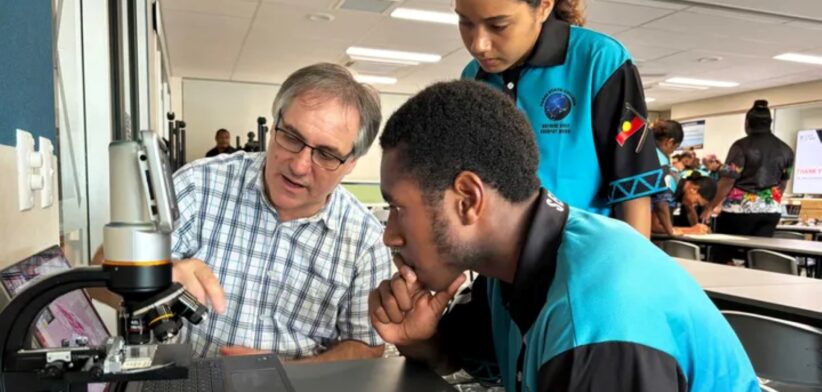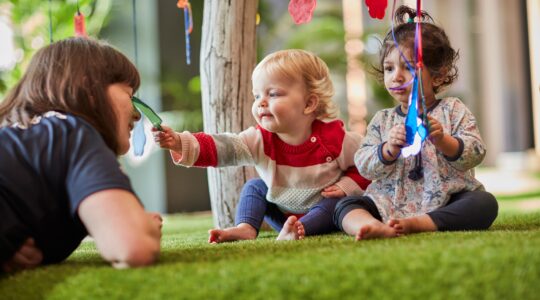The under-representation of Aboriginal and Torres Strait Islander students in science, technology, engineering, and mathematics (STEM) disciplines is the basis for a northern trek by Queensland scientists.
A team of QIMR Berghofer researchers have taken the world of medical research to school students in remote areas of Far North Queensland.
QIMR Berghofer Education Coordinator Manuel Serrano Santos said workshops were held in Weipa with students from Western Cape College and Aurukun State School as part of the research organisation’s regional education program.
Dr Serrano Santos said bringing scientists to schools in remote areas, such as Cape York, allowed students to experience firsthand the possibilities of a career in science.
He said students were given a real-world induction into the life of a scientist including using microscopes to view cancers and other diseases such as malaria, practising how to handle a pipette, carrying out simple DNA tests to explore the field of genetics and inherited diseases, and learning about different cell types of the brain and their role in mental health conditions and neurodegenerative diseases.
“It was amazing to see the students so highly engaged and interested in the workshops. It is very rewarding to be able to provide this opportunity. The face-to-face interaction is crucial to connecting with the students and inspiring them, as well as engaging with the local communities.”
Dr Serrano Santos said statistics from the Office of the Chief Scientist showed regional and remote students and Aboriginal and Torres Strait Islander students were vastly underrepresented in STEM.
“A key focus of the QIMR program was sharing the different pathways the scientists had taken into medical research, and the diverse range of careers available.”
He said indigenous teaching and learning approaches were embedded in the delivery of the workshops to support an inclusive approach, through practices such as story sharing and the use of symbols and images through dialogue with the community about local ways of doing things.
Learn more about the QIMR Berghofer Regional Education Program.








